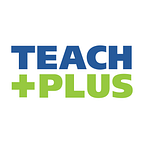Librarians and English Teachers Should Create Our Students’ Access to Literature
By Frank Rivera
“But why my son?” is not the question you want a mother to ask, and as any teacher will tell you, handling parent complaints is sort of like juggling chainsaws: You know there’s a right way to do it but you’re worried it could all come crashing down on your head at any second.
The complaint? That I’d given Quinn, her child, Marcus Ewert’s 10,000 Dresses — a children’s book about a young, transgender girl — to read for speech competition. As an English teacher and speech coach, I stay up to date on books like Ewert’s: socially conscious, a little silly, but with a strong narrative arc. It was one of a few books I gave Quinn to read for Storytelling, a middle school speech event where competitors perform children’s literature. It was also the only one that dealt with transgender identity. Quinn self-selected 10,000 Dresses and convinced their parents it was the right choice. Also, a competitive choice, as Ewert’s story took them to elimination rounds at the Middle School National Tournament.
Once upon a time, I made a similar choice: Am I Blue? by Bruce Coville. I competed at local speech competitions with the short story about a gay fairy godfather turning every queer person in the world blue for one day. I memorized, practiced, and performed this script before coming out of the closet. Not that it was hard to tell. Theater-obsessed, I also memorized reruns of The Golden Girls and knew every line to Meryl Streep and Goldie Hawn’s comedic magnum opus Death Becomes Her. When it eventually happened, it’s not like I came out of the closet so much as burned the door down. I knew I was gay long before I read Am I Blue? and I’m sure everyone else did, too. However, when I chose Coville’s short story, I didn’t realize that it gave me the language I needed to express myself. The story let me understand that my experience wasn’t isolated, and suddenly, I didn’t feel alone.
I’d wonder if I’d feel alone if I was a student in Keller, Texas, where books with LGBTQIA+ themes have been banned. Or taught in Norman, Oklahoma, where school teacher Summer Boismier was labeled a pedophile for linking the Brooklyn Public Library’s banned books list. Or lived in Katy, Texas, where the school district stripped library books featuring queer characters and topics from their shelves. These aren’t my towns, but every week, it gets closer to home.
Every week, outraged parents and community members inundate school board meetings with unfounded claims of predatory relationships and grooming. They want these books stricken from the classroom, the library shelves, and kids’ hands. They don’t want discussions of queer identity. They don’t do this out of maliciousness. They fear for their children and their children’s futures.
Queer adults fear for these children and their futures, too. We fear that, without these books, the next generation might go through the same bullying and the same isolation we did. We fear that these children won’t be able to describe who they are and what they want. We understand that fear because it comes from our experience.
For kids like me, school libraries have always been a salvation. Librarians create safe, curated environments. According to the American Association of School Librarians, “Improving and safeguarding LGBTQ+ collections positively impacts the academic and social-emotional learning of all learners.” Queer kids learn about themselves. Straight and cis-kids learn empathy. Reading about queer people does not turn a person queer. Trust me, I read Archie comics enough and never developed a crush on Betty or Veronica. Jughead, though? Forever.
It is professionals, librarians, and English teachers, who should create our students’ access to literature — with parental consent. Yes, there are texts too mature for every age. Selections must be made carefully. And the people to make those selections should be those with the training and education preparing them to do so. We call them educators for a reason, and at some point, we must trust that it is the educators who understand how best to educate.
Four years after 10,000 Dresses, Quinn, now identifying as a young woman, ended her high school speech career on the final round stage at Harvard University’s prestigious national speech and debate tournament. It wasn’t Ewert’s book alone that got her there. It was many works: poetry, prose and drama. Self-selected, but accompanied by conversations with me, and of course, her parents. She figured out how to say what she needed when she was ready.
It turns out, Quinn didn’t need 10,000. Just one. A red-and-black dress, with matching black heels, that looked incredible on the hallowed Harvard stage.
Frank Rivera is a middle and high school English Language Arts teacher at Chaparral Star Academy in Austin, Texas. He is a 2022–2023 Teach Plus Texas Policy Fellow.
